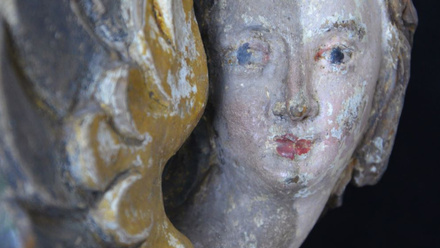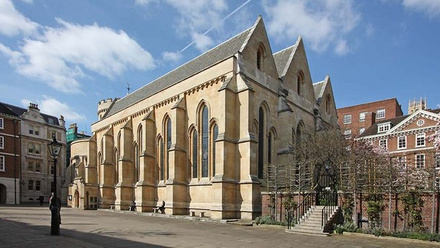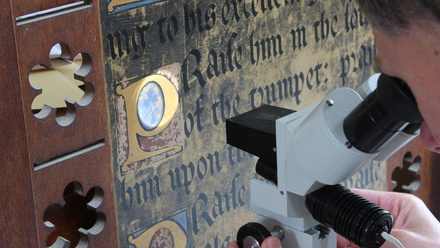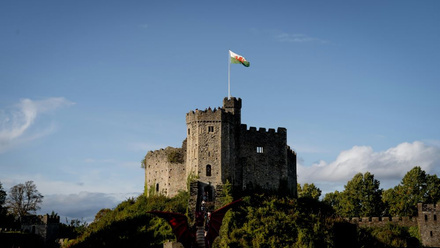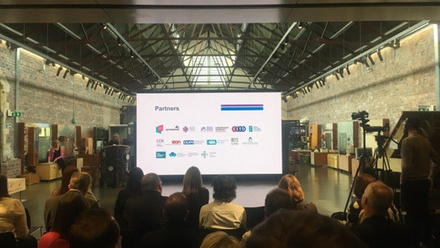In 2020, Icon ramped up its lobbying and advocacy work to influence decision makers and secure much needed support for a sector struggling with the impact of Coronavirus restrictions.
What was the goal we set out to achieve?
The Coronavirus pandemic and national lockdowns have posed many technical and financial challenges for cultural heritage professionals and the places where they work. Loss of income on the scale that many institutions and businesses have experienced cannot be replaced quickly and recovery will not be simple.
While we did not quite appreciate the scale of the crisis back in Spring 2020, it was evident that supporting the conservation profession throughout the pandemic had to be a priority for Icon. We therefore adjusted our strategy accordingly and realigned our activities to focus on helping the sector adjust and adapt.
It was also clear that Icon’s advocacy and policy work was now more important than ever as influencing decision makers to support cultural heritage and conservation would play a vital role in the sector’s survival.
March and April 2020 was the busiest period for Icon’s policy work ever.
What did we do?
March and April 2020 was the busiest period for Icon’s policy work ever. Other policy projects had to be put on hold as we focused on writing to Government ministers to explain the challenges for conservation presented by lockdown restrictions, the help that the sector urgently required, and the risks of not providing it.
To date, we have written 15 letters to politicians across all UK nations advocating for support for conservators during the Coronavirus crisis. We supplied briefings to Government via the Heritage Alliance (England’s largest umbrella body for heritage) to help shape policy and sector support measures.
We made use of all relevant opportunities coming out of the Government’s efforts to collect evidence and recommendations. For example, we responded to the DCMS Select Committee on the impact of Covid on the cultural sector and submitted proposals to the Comprehensive Spending Review.
In addition, we produced a variety of advocacy material designed for a broad audience. From our statements on the value of collections care through to our pamphlet on the economic benefits of conservation, our Coronavirus advocacy documents aimed to help members in their own individual advocacy efforts - whether it was writing to a local MP or negotiating with an employer.
You can find copies of our correspondence, briefings, statements and other policy material on the Icon Coronavirus Policy webpage. All of our letters, statements and responses focused on the priorities that we’ve lobbied for throughout the pandemic, including comprehensive support for freelancers and the self-employed, targeted grants for conservation and clarity on guidance and support measures.
From the very start of the pandemic, we knew that for Icon’s lobbying and support to be effective, it had to be based on a strong evidence base. Our lobbying priorities were therefore based on evidence we collected and stories we heard from our members.
As a first step, we opened up a direct line of communication through which members could share evidence, case studies and feedback to ensure we understood key issues and challenges from their perspectives. In April 2020, Icon undertook a Coronavirus survey asking conservators to share how they had been affected by the pandemic to further inform our lobbying work. We ran a second survey in November 2020 to re-assess the situation.
The resulting Coronavirus Reports outline the significant consequences of the outbreak on the profession - from changes to working practices, decreases in business revenue and personal income and impacts on mental health. We shared the findings with stakeholders and used them to back up the arguments in our letters, statements and policy responses. We’ve also shared the case studies provided by our members directly with DCMS and the Heritage Alliance, ensuring the personal experiences of conservators were being heard at the highest levels.
What was the outcome?
We were pleased to see many of our points acknowledged by decision makers. The DCMS Select Committee’s report called on Government to avoid restricting support to “well established, high profile, institutions,” stressing that “it is essential that cultural freelancers and small companies in the creative industries supply chain are also eligible for direct support.” The report also called for more application guidance, clarity and prompt access to funds. Each of these issues had featured heavily in our response to the call for evidence.
The impact of our lobbying was also reflected in the Government’s Cultural Recovery Fund for Heritage. Conservators and conservation work are specifically highlighted as being eligible for the fund.
The impact of our lobbying was also reflected in the Government’s Cultural Recovery Fund for Heritage. Conservators and conservation work were specifically highlighted as being eligible for the fund. The guidance stated that "for profit businesses that are a vital part of the heritage ecosystem and who generate the largest portion of their income from heritage work" were included, such as "conservators, contractors, specialists and suppliers."
We received positive responses from leaders we wrote to. Iain Greenway, Director of Historic Environment at the Department for Communities of Northern Ireland, responded to us saying “I have shared the letter with relevant colleagues...as I found it a very useful bringing together of the main impacts for conservators of the pandemic...your points have been taken into our thinking.”
Similarly, our partners valued the evidence we collected and shared. Historic England expressed its appreciation for “Icon’s generosity in being willing to share information,” describing Icon’s Coronavirus research reports “a great example of working together.”
What did we learn?
Once again we learned that outcomes are improved when you collaborate. The power of working with others was evident throughout our advocacy work - from identifying challenges and drafting policy content through to sharing our messages. We wrote content based on evidence supplied from members and partners and sought feedback from each other on the clarity and consistency of communications to ensure maximum impact.
By working together with our partners, such as the Heritage Alliance, we were able to amplify messages and reach audiences more effectively. Through the Alliance, we had direct access to DCMS, which placed us in a good position to continue to raise concerns and propose solutions with civil servants and ministers alike.
What next? [updated in April 2021]
Icon continues to lobby for support for conservators with Government and decision makers. Most recently our Chief Executive Sara Crofts participated in a roundtable with the Shadow Minister for Tourism & Heritage, Alex Sobel MP to discuss the impact of the Coronavirus (Covid-19) on the heritage sector.
The event offered an opportunity to raise a concern that has become a focus for Icon in recent months - the fragile ecosystem of the commercial conservation sector and the many freelancers and self-employed conservators who have missed out on financial support for business due to ineligibility for key schemes.
Icon is...backing the establishment of a freelance commission to support the government in better understanding the challenges faced by cultural and creative freelancers
While we were delighted by the extension of the Self-employment Income Support Scheme in the Chancellor’s Budget 2021, we remain concerned for the individuals who continue to fall between the cracks of support schemes. These include sole directors of limited liability companies, recent graduates, and conservators who operate in the gig economy or juggle a variety of part-time jobs and freelance work.
Icon also warmly welcomed the Chancellor’s further investment in the Cultural Recovery Fund. We were grateful to be awarded a grant through the fund in 2020 to support our future resilience. However, many of our members have highlighted how the fund’s application processes were tailored to larger organisations. We are therefore now calling for the careful assessment and potential amendment of future funds to ensure that conservation businesses and SMEs are not inadvertently excluded.
Icon is also backing the establishment of a freelance commission to support the government in better understanding the challenges faced by cultural and creative freelancers.
Find out more about Icon's lobbying work during Coronavirus.

